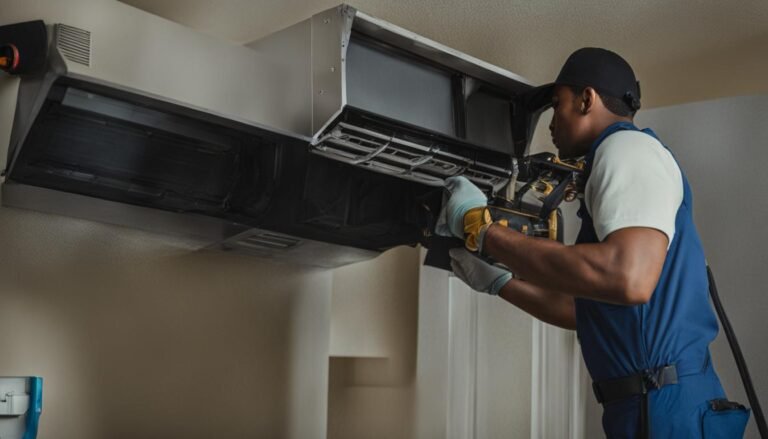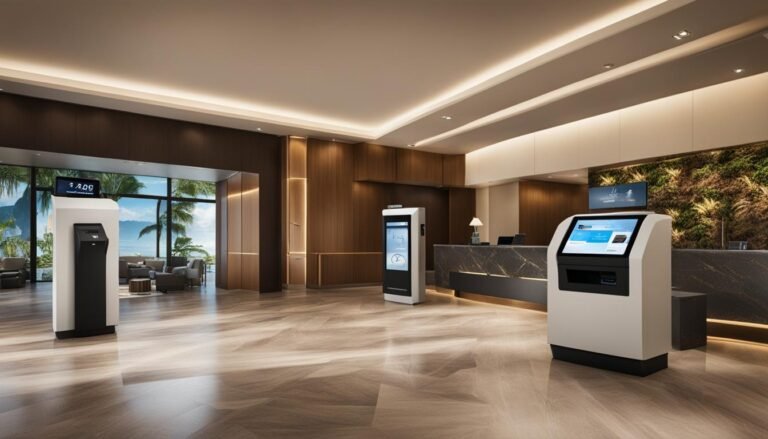Effective Revenue Management Strategies in Hotels
Effective revenue management is crucial for the success of any hotel. In an industry as dynamic and competitive as hospitality, it is imperative for hoteliers to continually refine their strategies to maximize revenue.
From understanding market demand to leveraging data and analytics, there are various aspects that need to be considered in order to stay ahead.
Implementing effective revenue management strategies can be the difference between an average performance and a thriving business.
Key Takeaways
- Pricing psychology and consumer behavior influence market demand.
- Dynamic pricing adjusts room rates based on real-time demand and market factors.
- Channel management ensures effective distribution across various channels.
- Data analytics provide insights into consumer behavior and market trends.
Understanding Market Demand
Understanding market demand is essential for hotels to effectively manage their revenue and optimize their pricing strategies. Pricing psychology and consumer behavior play a crucial role in comprehending market demand. By understanding how consumers perceive pricing and make purchasing decisions, hotels can adjust their pricing strategies to maximize revenue.
Moreover, demand segmentation is vital for hotels to identify different customer segments with varying demand patterns. This allows hotels to tailor their pricing and marketing strategies to meet the specific needs of each segment, thereby optimizing revenue potential.
In addition, competitor analysis is a key aspect of understanding market demand. By monitoring competitors' pricing strategies and consumer behavior, hotels can gain valuable insights into market trends and dynamics. This information can be used to adjust their own pricing strategies and stay competitive in the market.
Understanding market demand also involves analyzing historical data and trends to forecast future demand accurately.
Implementing Dynamic Pricing Strategies
With a solid grasp of market demand and consumer behavior, hotels can strategically implement dynamic pricing strategies to effectively optimize revenue and adapt to fluctuating market conditions.
Dynamic pricing, a key component of yield management, allows hotels to adjust room rates based on real-time demand, competitor pricing, and other market factors. By leveraging technology and data analytics, hotels can dynamically set prices to maximize revenue, especially during high-demand periods or special events. This approach not only helps in price optimization but also ensures that the hotel is not underselling or overselling its inventory.
Implementing dynamic pricing strategies involves careful consideration of various factors such as seasonality, local events, and booking patterns. By analyzing historical data and current trends, hotels can set dynamic pricing rules to automatically adjust rates based on occupancy levels and demand forecasts.
Additionally, offering personalized pricing based on customer segments and booking behaviors can further enhance revenue potential. Ultimately, dynamic pricing strategies enable hotels to stay competitive, capture additional revenue during peak periods, and maintain a balanced pricing strategy throughout the year.
Optimizing Distribution Channels
Optimizing distribution channels is crucial for hotels to efficiently reach and engage their target audience while maximizing revenue potential. To achieve this, hotels need to carefully manage their distribution channels and direct bookings to ensure a balanced and effective approach.
Here are key strategies for optimizing distribution channels:
- Channel Management: Implementing a robust channel management strategy is essential for hotels to effectively distribute their inventory across various online and offline channels. This involves actively monitoring and managing the hotel's presence on third-party booking platforms, ensuring rate parity, and optimizing inventory allocation.
- Direct Bookings: Encouraging direct bookings through the hotel's website or mobile app can significantly reduce reliance on third-party channels and increase profit margins. Offering incentives such as exclusive discounts, loyalty program benefits, or additional perks can motivate guests to book directly, thereby enhancing revenue and fostering guest loyalty.
- Online Travel Agencies (OTAs): While OTAs play a vital role in reaching a broader audience, it's important for hotels to strike a balance in their reliance on these platforms. Negotiating favorable commission rates and strategically utilizing OTAs can help optimize distribution without compromising profitability.
- Market Segmentation: Tailoring distribution strategies based on market segments and customer preferences can enhance the effectiveness of distribution channels. By understanding the unique booking behaviors of different customer segments, hotels can optimize their distribution efforts to target specific audiences more effectively.
Leveraging Data and Analytics
Utilizing advanced data analytics, hotels can gain valuable insights into consumer behavior and market trends, enabling them to make informed decisions to optimize their revenue management strategies. Data driven decision making allows hotels to understand customer preferences, booking patterns, and demand fluctuations. By analyzing historical data and current market trends, hotels can predict future demand more accurately. This enables them to adjust room pricing dynamically, maximizing revenue during peak periods and stimulating demand during off-peak times.
Predictive analytics plays a vital role in revenue management by forecasting occupancy levels, pricing trends, and customer behavior. By leveraging predictive analytics, hotels can identify opportunities for upselling, cross-selling, and personalized pricing strategies. This leads to enhanced revenue generation and improved customer satisfaction.
Furthermore, data analytics can help hotels identify the most profitable distribution channels and marketing strategies. By understanding which channels and campaigns yield the highest returns, hotels can allocate their marketing budgets more effectively, driving revenue growth.
Enhancing Revenue Forecasting Techniques
To improve revenue forecasting techniques, hotels can implement advanced statistical models and machine learning algorithms to analyze historical data and predict future demand more accurately. These techniques can significantly enhance pricing optimization and forecast accuracy, providing hotels with a competitive edge in revenue management.
Here are some effective strategies for enhancing revenue forecasting techniques:
- Advanced Statistical Models: Utilizing advanced statistical models such as time series analysis and regression analysis can provide more precise predictions of future demand patterns.
- Machine Learning Algorithms: Implementing machine learning algorithms, such as neural networks or random forests, can help hotels uncover complex demand patterns and make more accurate revenue forecasts.
- Dynamic Pricing Strategies: By integrating revenue management systems with dynamic pricing strategies, hotels can dynamically adjust prices based on demand fluctuations, optimizing revenue streams.
- Market Segmentation Analysis: Conducting in-depth market segmentation analysis allows hotels to understand the demand variations across different customer segments, enabling more targeted pricing and forecasting strategies.
Conclusion
In conclusion, effective revenue management in hotels relies on understanding market demand, implementing dynamic pricing strategies, optimizing distribution channels, leveraging data and analytics, and enhancing revenue forecasting techniques.
It's quite comical how some hotels still struggle to grasp these fundamental concepts, leading to missed revenue opportunities and lost potential for growth.
One would think that in this data-driven age, such basic principles would be universally understood and applied. Alas, the struggle continues for some.







